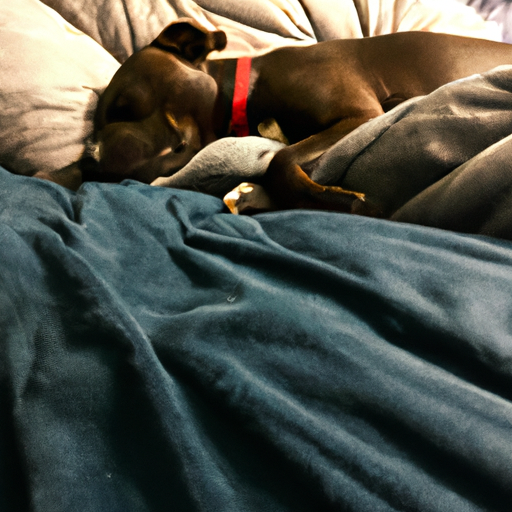If you’re a dog owner, you’ve probably noticed that your furry friend has a tendency to shake, twitch, or move in their sleep. This can be disconcerting to watch, especially if you’re unsure why it’s happening. Is it normal? Should you be worried?
In this article, we’ll dive deep into understanding why dogs shake in their sleep. We’ll explore the reasons behind this phenomenon, the different types of shaking, and when you should be concerned. We’ll also answer some of the most frequently asked questions on this topic.
Table of Contents
- Understanding why dogs shake in sleep
- Different types of shaking
- When to be concerned
- Frequently Asked Questions
Key Takeaways
- Dogs shake in their sleep mainly due to dreaming.
- There are different types of shaking, including muscle twitching and full-body shaking.
- While shaking during sleep is generally normal, certain situations require veterinary attention.
- It’s crucial to know when shaking could be a sign of a more serious issue.
Understanding Why Dogs Shake in Sleep
Just like humans, dogs have sleep cycles and dream. According to a study from the Harvard Medical School, dogs enter the REM (Rapid Eye Movement) sleep stage when they dream, and this is usually when you’ll notice them shaking or twitching.
Dreaming is a primary reason why dogs shake in their sleep. They might be chasing a squirrel, playing fetch, or running across fields in their dreams, and these movements translate into real-life twitching.
Moreover, dogs also experience a kind of sleep called ‘paradoxical sleep’. During this phase, dogs lose most of their muscle tone, which can lead to twitching and shaking movements.
To understand more about dogs’ sleep patterns, you can check out this article on Understanding Your Dog’s Sleep Pattern.
Different Types of Shaking
There are several types of shaking that you might observe in your sleeping dog:
-
Muscle Twitching: This is the most common type of shaking, and it’s usually harmless. It can involve their legs, tail, or even their entire body.
-
Full-Body Shaking: This is less common and can be a bit alarming to watch. However, it’s usually just a sign that your dog is having an intense dream.
-
Trembling or Shivering: This is different from the typical dream-induced shaking. If your dog is trembling or shivering during sleep, it could be due to being cold, anxiety, or health issues.
You can learn more about the different types of shaking and what they mean in this article: Decoding Your Dog’s Shaking.
When to Be Concerned
While it’s normal for dogs to shake in their sleep due to dreaming or sleep cycles, there are times when shaking could be a sign of a more serious issue.
You should be concerned if:
- The shaking is accompanied by other worrying signs such as loss of appetite, lethargy, or unusual behavior.
- Your dog seems to be in distress or discomfort.
- The shaking continues even when your dog is awake.
If you notice these signs, it’s recommended to consult with your vet immediately. Check out this guide on When to Take Your Dog to the Vet for more information.
Frequently Asked Questions
1. Do all dogs shake in their sleep?
Not all dogs shake in their sleep. If your dog doesn’t, it’s nothing to worry about.
2. Can I wake my dog if they’re shaking in their sleep?
It’s best to let sleeping dogs lie. Waking them up could startle them or disrupt their sleep cycle.
3. What if my dog is shaking and seems scared?
If your dog seems scared or anxious, it’s best to consult with a vet. They could be having nightmares or experiencing anxiety.
To wrap it up, a little shaking during sleep is generally normal for dogs. It’s usually a sign that they’re dreaming or experiencing different sleep stages. However, always keep an eye out for unusual behavior, and consult your vet if you’re concerned. After all, you know your dog best!



